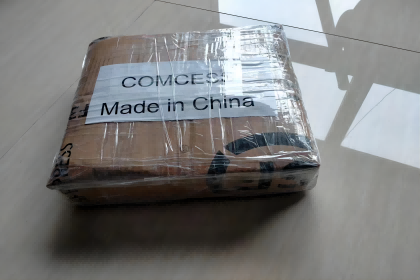-
012023-09
.png) Gel-type Strongly Acidic Microspheres resin which is equivalent to Dovex 50W X8 sample ready for deliveryThailand customers ordered sample of Gel-type Strongly Acidic Powder resin which is equivalent to Dovex 50W X8 sample ready for delivery .View More >6
Gel-type Strongly Acidic Microspheres resin which is equivalent to Dovex 50W X8 sample ready for deliveryThailand customers ordered sample of Gel-type Strongly Acidic Powder resin which is equivalent to Dovex 50W X8 sample ready for delivery .View More >6 -
252023-08
.png) GD200 Chelating Resin thiourea functional group for mercury and recover precious metals in industrial wastewater sample for DeliveryUSA customers ordered sample of Chelating Resin thiourea functional group for mercury and recover precious metals in industrial wastewater Ready for Delivery.View More >12
GD200 Chelating Resin thiourea functional group for mercury and recover precious metals in industrial wastewater sample for DeliveryUSA customers ordered sample of Chelating Resin thiourea functional group for mercury and recover precious metals in industrial wastewater Ready for Delivery.View More >12 -
182023-08
.png) MR110 Polishing grade mixedbed ion exchange resin for EDM wire cutting mixed bed system sample ready for deliveryIndia customers ordered samples of MR110 Polishing grade mixedbed ion exchange resin for EDM wire cutting mixed bed system water preparation ready for deliveryView More >3
MR110 Polishing grade mixedbed ion exchange resin for EDM wire cutting mixed bed system sample ready for deliveryIndia customers ordered samples of MR110 Polishing grade mixedbed ion exchange resin for EDM wire cutting mixed bed system water preparation ready for deliveryView More >3 -
112023-08
.png) COMCESS®OR100 Oil Removal Resin for Condensate sample for DeliverySaudi Arabia customers ordered sample of OR100 Oil Removal Resin for Condensate Ready for Delivery.View More >30
COMCESS®OR100 Oil Removal Resin for Condensate sample for DeliverySaudi Arabia customers ordered sample of OR100 Oil Removal Resin for Condensate Ready for Delivery.View More >30 -
042023-08
.png) D113 Macroporous weakly acrylic acid type cation exchange resin for water soften and wastewater treatment sample for DeliveryKazakhstan customers ordered sample of D113 Macroporous weakly acrylic acid type cation exchange resin for water soften and wastewater treatment Ready for Delivery.
D113 Macroporous weakly acrylic acid type cation exchange resin for water soften and wastewater treatment sample for DeliveryKazakhstan customers ordered sample of D113 Macroporous weakly acrylic acid type cation exchange resin for water soften and wastewater treatment Ready for Delivery.
View More >8 -
282023-07
 001×7 Strongly Acidic Styrene Type Cation Exchange Resin for water soften and pure water preparation samples ready for deliveryThis product is styrene and divinyl benzene cross linked copolymer molecule with sulfonic acid group ion exchange resin. It’s acidity is equal to sulfuric acid and hydrochloric acid’s.It has the features of high strength and high exchange capacity.Mainly used for water and other liquid softening, desalination as well as aginomoto and amino acid, pure water preparation, hydrometallurgy, rare metal separation, antibiotics,etc.View More >17
001×7 Strongly Acidic Styrene Type Cation Exchange Resin for water soften and pure water preparation samples ready for deliveryThis product is styrene and divinyl benzene cross linked copolymer molecule with sulfonic acid group ion exchange resin. It’s acidity is equal to sulfuric acid and hydrochloric acid’s.It has the features of high strength and high exchange capacity.Mainly used for water and other liquid softening, desalination as well as aginomoto and amino acid, pure water preparation, hydrometallurgy, rare metal separation, antibiotics,etc.View More >17

